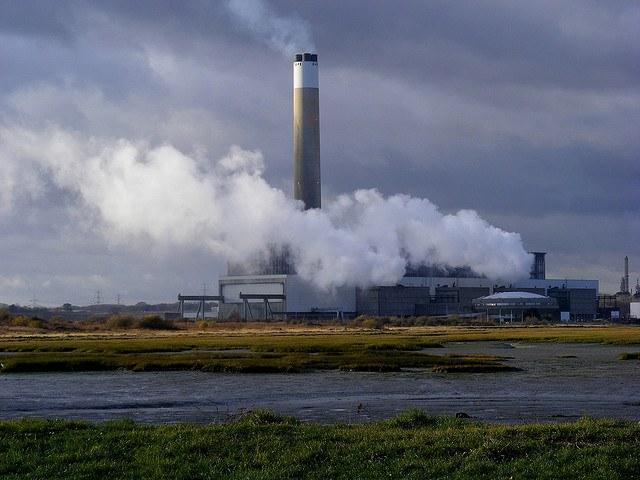
The U.S. Senate will soon vote on a bipartisan energy bill. If successful, it will be the first major energy bill to pass since George W. Bush was in office in 2007.
The bill includes climate-friendly amendments such as energy-efficiency measures. But it is over 400 pages and is bound to include measures that aren’t so climate friendly.
Congress is required to determine if a bill would add to the federal deficit prior to voting on it. The reason for that requirement is so that congressional members can figure out if they’re saddling the next generation with debt. However, there is no such provision when it comes to climate change.
As the Environmental Defense Fund (EDF) declared in a blog post last week: “Congress is about to vote on an energy bill without even bothering to check if it increases or decreases climate pollution.” And since fossil fuels account for the majority of carbon emissions, it is important to figure out the energy bill’s climate impact.
Sen. Dianne Feinstein (D-Calif.) would like to change that and introduced an amendment to the energy bill to require that its climate impact be evaluated.
The EDF praised the amendment: “Senator Feinstein's amendment is an important and responsible step forward,” Mark MacLeod, EDF's director of special projects, climate and air, told Triple Pundit. “Americans have a right to know if energy legislation is going to increase or decrease those emissions. Ideally, members of Congress would know the climate pollution impact of a bill before they vote on it."
Senate amendment acknowledges the deceit of fossil fuel companies
Sen. Feinstein’s amendment is not the only one that addresses climate change. Last week, Democratic Sens Sheldon Whitehouse (R.I.), Ed Markey (Mass.) and Brian Schatz (Hawaii) introduced a strongly-worded amendment expressing disapproval that fossil fuel companies funded climate-science denial. “It is the sense of the Senate that ... fossil fuel companies have long known about the harmful climate effects of their products,” the amendment states.Fossil fuel companies “used a sophisticated and deceitful campaign that included funding think tanks to deny, counter, and obstruct peer-reviewed research; and used that misinformation campaign to mislead the public and cast doubt in order to protect their financial interest."
The end of the amendment alludes to the investigations by the California and New York attorneys general into ExxonMobil. It urges fossil fuel companies to “cooperate with active or future investigations into their climate-change related activities and what the companies knew and when they knew it.”
Last month, California Attorney General Kamala D. Harris launched an investigation to determine if ExxonMobil failed to report climate-change risks to shareholders and lied to the public about those risks. In November, New York Attorney General Eric Schneiderman launched his own investigation to determine if ExxonMobil lied to the public or investors about climate change risks, with a focus on statements the company made to investors.
Despite the investigations, last week ExxonMobil stated in a letter that it wants a shareholder resolution related to climate risk eliminated. The resolution calls on the oil and gas giant to adopt a policy that acknowledges the “imperative” to limit global temperature rise to 2 degrees Celsius. Clearly, the company is still trying to keep investors in the dark about climate change.
In December, world leaders met in Paris and agreed on a successor to the Kyoto Protocol. The world simply can’t afford energy bills by the wealthiest countries that fail to consider climate change. Neither can it afford fossil fuel companies that refuse to own up to their deceit of investors and the public about climate risks and continued efforts to keep them in the dark about those risks.
Image credit: Flickr/Gillian Thomas

Gina-Marie is a freelance writer and journalist armed with a degree in journalism, and a passion for social justice, including the environment and sustainability. She writes for various websites, and has made the 75+ Environmentalists to Follow list by Mashable.com.














